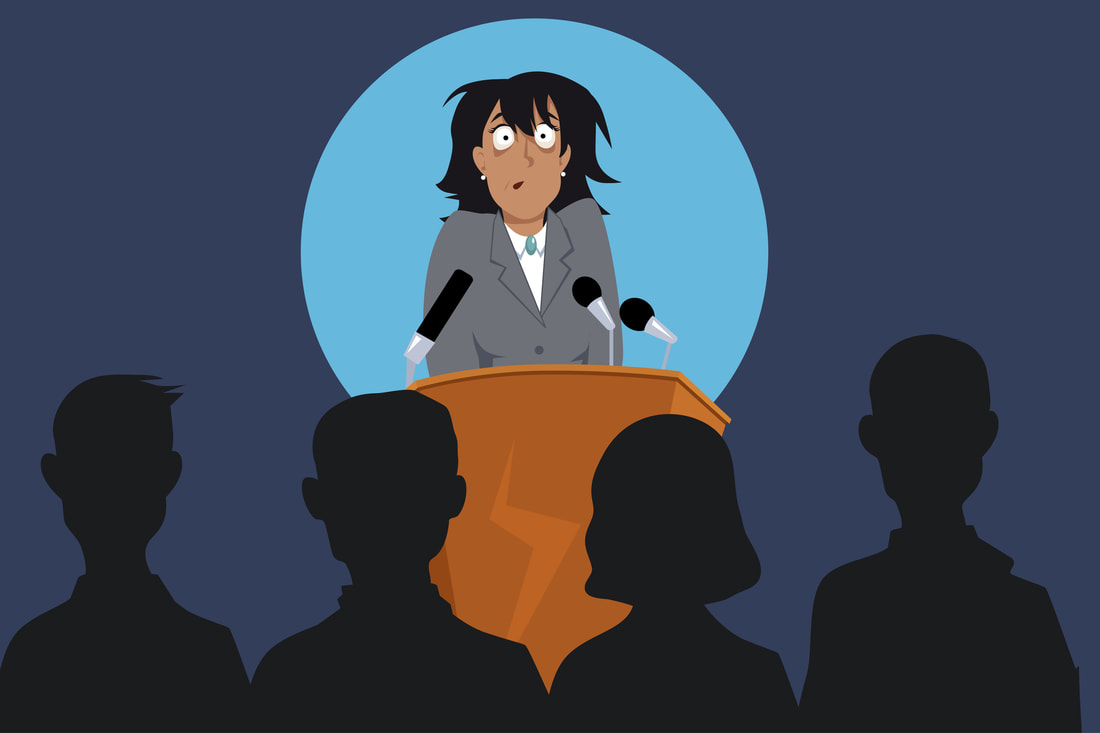“There are two types of speakers – those that are nervous and those that are liars.”
– Mark Twain
“According to most studies, people’s number one fear is public speaking. Number two is death… This means to the average person, if you go to a funeral, you’re better off in the casket than doing the eulogy.”
Of course, Seinfeld is being funny—but he’s also pointing out how irrational this fear can seem. If someone held a gun to your head and told you to give a speech, you’d find your voice pretty quickly, right?
So What’s Going On?
I’m not going to bombard you with stats. They’re often contradictory anyway, depending on how the questions are asked. But here’s what I do know: fear of public speaking is incredibly common. I’ve met countless people who share the same fear I once had. And the reasons why we fear it are fascinating.
Let’s dive into a few of them.
1. It Might Be Evolutionary
Ever felt your heart race, palms sweat, or mind go blank before speaking? That’s your ancient survival system kicking in. The fight-flight-freeze response, designed to help us face danger, gets triggered… by a room full of people.
But why would an audience feel dangerous?
One explanation: when you’re standing on stage, you feel exposed—like prey under a spotlight, with no barrier between you and the “predators.” Another theory says being up there separates you from the group. Back in prehistoric times, being cast out from the tribe meant certain death. So maybe your brain is reacting as if you’re being rejected (or losing status) —which, back then, was a life-threatening situation.
Sounds far-fetched? Maybe. But the physical response is very real, so it’s not hard to believe there’s some evolutionary wiring behind it.
2. We’re Afraid of Being Judged
Before every course I run, I ask participants what they’re most worried about. One of the top answers? “Looking nervous.” Why? Because we think it makes us look weak. Or unprofessional. Or just plain awkward.
Here’s the truth: you always feel more nervous than you look. I have a blog coming soon on this, but take it from me—even if I can tell someone’s nervous, I see it as a sign they care.
We feel like we are being judged because of the Spotlight Effect. This is a well-studied cognitive bias where we think people notice us way more than they actually do. As a speaker, you might obsess over a stumble or a shaky voice, but the audience is usually too focused on your message—or their own thoughts—to notice.
Here is one of my favourite quotes:
“We would worry less about what others think of us if we realized how seldom they do.”
– Ethel Barret
3. We Let Our Thoughts Sabotage Us
A big part of the fear comes from what’s going on in our heads. Here are some common mental traps:
- Focusing only on the negative: We replay our mistakes like a blooper reel and forget the moments that went well. See my previous blog article on the negativity bias.
- Past trauma: One bad experience can stick with us for years. As Dr. Rick Hanson puts it, “The brain is like Velcro for negative experiences and Teflon for positive ones.”
- Fear of fear: We worry so much about getting nervous that… we get more nervous. It becomes a self-fulfilling prophecy.
Yes, extreme nerves can hurt your performance—but a few butterflies? They can actually help, sharpening your focus and boosting your energy.
4. Maybe It’s Not Fear at All—Maybe It’s Excitement
Here’s an interesting theory: what if the rush you feel before speaking isn’t fear, but excitement misread by your brain?
Physiologically, fear and excitement look almost identical—racing heart, sweaty palms, adrenaline. Think of an athlete before a big race. They’re nervous and pumped. That adrenaline is a performance booster.
If we could reframe the sensation as anticipation rather than fear, our bodies could help us shine on stage instead of shutting down.
5. Some People Just React More Intensely
This isn’t so much a separate theory as a reminder: people are wired differently. Some are more biologically prone to anxiety and stress. Their brains produce more cortisol under pressure. If that’s you, it doesn’t mean you can’t become a confident speaker—it just means your starting point is a little different.
The Common Thread
What ties all these theories together is this: our fear of public speaking is usually way out of proportion to the actual risk involved. We know this. It’s not rational. Extreme public speaking anxiety has a name – Glossophobia, which, like any phobia, doesn’t respond well to logic alone. But understanding where the fear comes from—and knowing you’re not alone—is a powerful first step in managing it.
If you’ve ever been afraid to speak up, know this: you’re in good company. Even the most confident speakers started somewhere—and many of them were once as nervous as you are.

